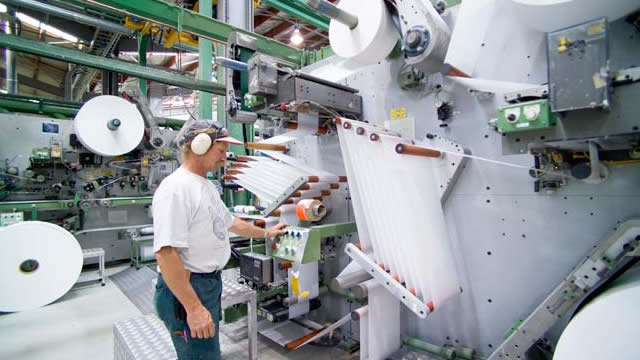AutoNation and the Looming Threat of Tariffs: A Deteriorating Landscape for Auto Stocks
In the ever-evolving world of finance, few announcements have caused as much commotion as President Trump’s plan to impose a 25% tariff on all vehicles imported to the United States. This bold move, aimed at protecting domestic industries, has sent shockwaves through the automotive sector, with AutoNation being one of the latest additions to the list of affected companies.
AutoNation: A Snapshot
AutoNation, Inc. is America’s largest automotive retailer, operating over 300 locations in 15 states. With a diverse portfolio of brands under its wing, including Ford, Toyota, Volkswagen, and Honda, the company caters to a broad customer base. The tariffs, however, pose a significant challenge to its business model, as a substantial portion of the vehicles it sells are imported.
The Impact on AutoNation
The proposed tariffs have cast a long shadow over AutoNation’s future prospects. Analysts predict that the company could face increased costs, reduced profitability, and potential loss of market share. As a result, shares of AutoNation took a hit, with the stock price experiencing a noticeable decline following the tariff announcement.
A Ripple Effect: How This Affects Consumers
The tariffs could translate into higher prices for consumers. With the added cost of importing vehicles, manufacturers may be forced to pass these expenses onto consumers in the form of higher sticker prices. Furthermore, dealerships, like AutoNation, may need to absorb some of these costs or risk losing sales to competitors offering more competitive pricing.
- Consumers may face higher prices for imported vehicles
- Domestic competitors could potentially gain market share
- Dealerships, like AutoNation, may need to absorb some costs
A Global Conundrum: How This Affects the World
The implications of the tariffs extend far beyond the borders of the United States. Countries that export vehicles to the U.S. could face economic repercussions, as their automotive industries may struggle to compete in the face of increased costs. Furthermore, potential retaliation from these countries could lead to a trade war, further complicating the global economic landscape.
- Countries exporting vehicles to the U.S. may face economic challenges
- Retaliation from affected countries could lead to a trade war
A Cautious Outlook
As the situation unfolds, it is essential for investors, consumers, and industry stakeholders to remain informed about the potential impact of the tariffs. The automotive sector, with its complex web of interconnected players, is poised to experience significant changes as a result of this policy shift. As always, it is advisable to consult with financial professionals for personalized advice and to stay abreast of developments in the industry.
Conclusion
The proposed 25% tariff on imported vehicles threatens to disrupt the automotive industry, with AutoNation being one of the latest companies to feel the heat. The ripple effects of this policy shift could manifest in higher prices for consumers, reduced profitability for dealerships, and potential economic repercussions for countries exporting vehicles to the U.S. As the situation continues to evolve, it is crucial for all stakeholders to remain informed and adapt to the changing landscape.





